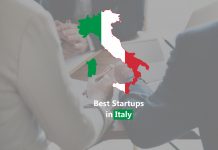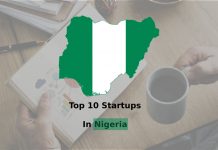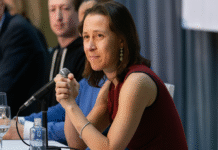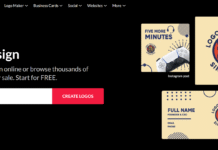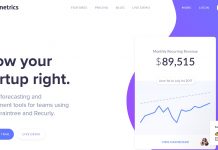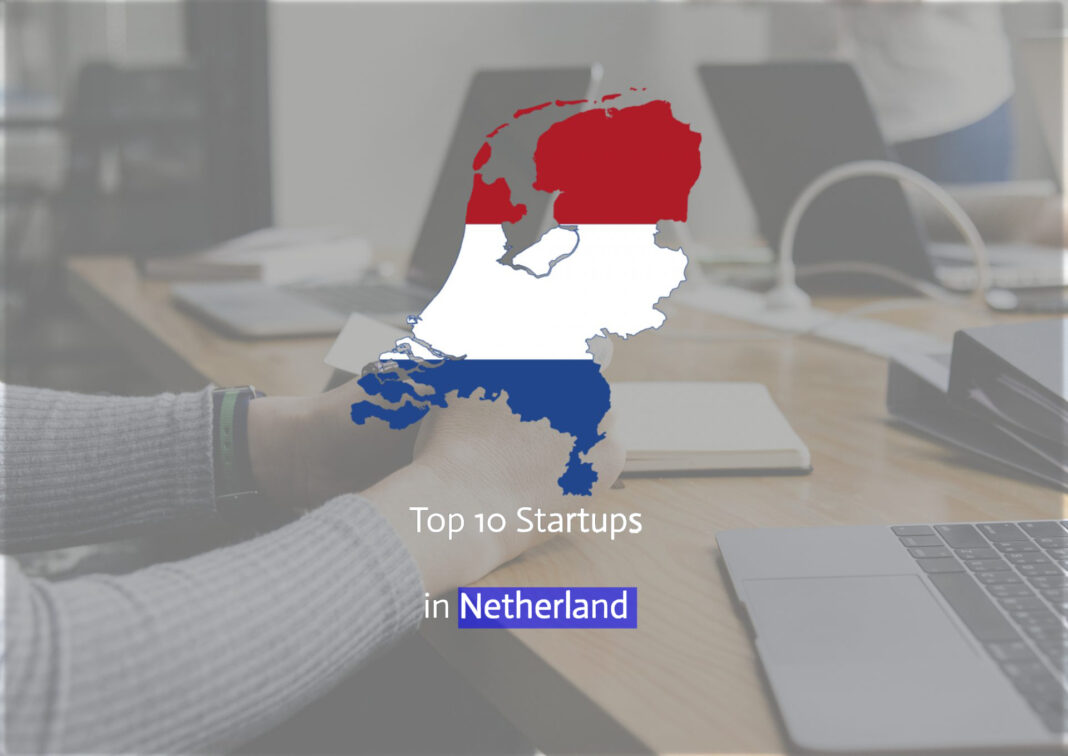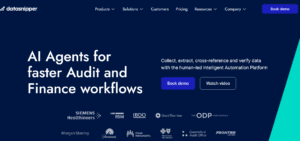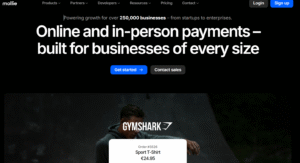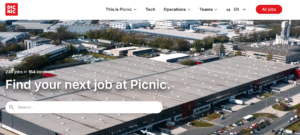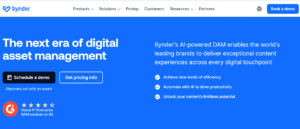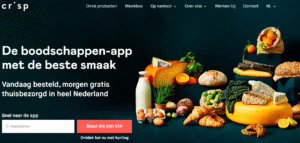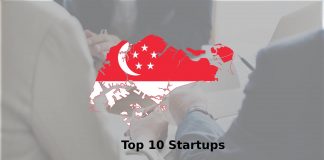The Rising Force of Dutch Startups
In recent years, the ecosystem of Dutch startups has emerged as a vibrant arena for innovation, entrepreneurship and cross-border growth. The Netherlands presents a unique convergence of strengths: advanced digital infrastructure, a regulatory environment that supports enterprise, and a culture that values experimentation and collaboration. As a result, Dutch startups are establishing themselves not only within Europe, but increasingly on global stages. For those seeking to understand how this evolution is occurring, it is essential to grasp both the structural foundations of the ecosystem and the exemplary ventures driving progress.
This article provides a comprehensive overview of how the Dutch startup environment has developed, the institutional and cultural pillars that underpin it, and profiles of five standout ventures. Each of these companies exemplifies how Dutch startups are transforming sectors as diverse as hardware, artificial intelligence, fintech and hospitality. If you wish to explore more articles in this domain, you may visit the Top category on Startupik.
The Foundation of the Dutch Startup Ecosystem
The Netherlands offers an environment where Dutch startups can launch, grow and scale with relative agility. One key element is the availability of immigration pathways such as the Startup Visa programme, which permits non-EU entrepreneurs to establish innovative companies with a one-year residence permit supporting business development.
In addition to immigration facilitation, fiscal incentives are also critical. The WBSO (Research & Development tax credit) enables companies to reduce the cost of R&D labour, while the Innovation Box regime lowers the effective corporate tax rate on profits derived from innovative assets. These tools reduce early-stage financial burden and enable management teams to focus on product-market fit rather than overhead.
Amsterdam and Eindhoven, among other Dutch cities, are home to a network of accelerators and incubators, such as YES!Delft and Rockstart, which blend mentorship, capital access and laboratory facilities. Such infrastructure supports the transition from idea to market-ready company. Moreover, high rates of English proficiency and the country’s openness to international talent mean that Dutch startups can access global markets and talent pools with fewer linguistic or operational barriers.
Why Dutch Startups Excel
Multiple interlocking factors explain the consistent emergence of high-growth companies among Dutch startups. First, education and talent creation are strong; technical universities such as TU Delft and Eindhoven University of Technology supply skilled engineers and researchers who often found or join scaling ventures. Second, the collaborative culture in the Netherlands encourages knowledge transfer between academia, corporates and startups, speeding up innovation cycles.
Third, access to capital has improved markedly. Venture funds like Peak Capital, Prime Ventures and Newion, together with international investors, are increasingly backing Dutch technology companies. The combination of domestic and global funding gives founders more flexibility and ambition. Fourth, sustainability and environmental awareness are deeply embedded influencing startups to adopt circular economy principles, green energy models or food-tech innovations from their inception rather than as after-thoughts.
Finally, Dutch startups frequently operate in or pivot to “deep tech” domains: artificial intelligence, semiconductor hardware, biotech and quantum computing. This orientation away from purely consumer internet models means many companies build defensible technology with meaningful entry barriers.
Deep Tech and Beyond: The New Direction
A defining characteristic of modern Dutch startups lies in their ambition to not merely participate in market trends but to lead technological transitions. Whether it is hardware built for AI inference at the edge, platforms automating complex enterprise workflows or scalable SaaS models addressing global industries, Dutch startups are increasingly oriented toward global relevance.
Supportive hubs such as YES!Delft, HighTechXL and Rockstart provide structures that emphasise technical validation, capital readiness and cross-sector collaboration. The result is that hardware, software and service ventures have the support needed to breakthrough. By combining research excellence with entrepreneurial execution, Dutch startups are positioning the Netherlands as a credible competitor in the global innovation economy.
Top Dutch Startups Driving Innovation
Below are profiles of five Dutch-based startups that exemplify how companies from the Netherlands are making significant impact. Each profile includes a direct link to the company’s official website.
1. Axelera AI – Pioneering Chips for Edge and Inference
Axelera AI, headquartered in Eindhoven, is developing AI hardware and software platforms designed to deliver high-performance inference at the edge. Its Metis® platform employs digital-in-memory computing (D-IMC) and a RISC-V based architecture, enabling substantial improvements in energy efficiency and throughput for computer vision and generative AI tasks.
In March 2025, Axelera AI secured up to €61.6 million in grant funding from the EuroHPC Joint Undertaking, to develop its next-generation chiplet, Titania®, targeting data centre and inference scale workloads. The company had previously closed a $68 million Series B funding round that brought total funding to more than $120 million. The combination of strong technical foundation and strategic capital underscores how Dutch startups can operate at the frontier of hardware innovation.
2. DataSnipper – Audit Automation Meets Artificial Intelligence
Based in Amsterdam, DataSnipper is an intelligent automation platform for auditors and finance professionals. Its technology automates document review, data extraction and cross-checking in audit workflows, thereby freeing professionals from repetitive tasks and enabling deeper analytical focus.
In February 2024, DataSnipper raised $100 million in a Series B funding round led by Index Ventures at a $1 billion valuation, making it a unicorn among Dutch startups. The company has also pursued acquisitions and product extensions to dominate the audit software space globally. PR Newswire Its rapid international rollout illustrates how Dutch startups can scale quickly beyond national borders when they address universal enterprise inefficiencies.
3. Mews – Cloud Platform for Hospitality Operations
Mews provides a cloud-based property management system (PMS) for the hospitality industry. Founded in Amsterdam, the company enables hotels, hostels and other accommodation providers to streamline bookings, payments, guest communication and operations via a unified platform. The growth of Mews demonstrates that Dutch startups can deliver highly scalable SaaS solutions into mature industry verticals.
By designing products with global expansion in mind and embedding integration capabilities, Mews has achieved leadership status in the hospitality tech sector. It stands as an example of how Dutch startups combine domestic base with international ambition.
4. Mollie – Simplifying Payments for Businesses
Mollie is a Dutch fintech company headquartered in Amsterdam that offers a wide suite of payment services for small and medium-sized enterprises. Its platform supports multiple payment methods, simplifies checkout experiences and handles compliance and risk management.
Mollie’s steady revenue growth and its expansion across Europe reflect the maturity of the Dutch payments sector and the capability of Dutch startups to build globally competitive fintech solutions. Its platform approach enables businesses to integrate payments seamlessly, thereby reducing friction and scaling efficiently.
5. bunq – A New Generation Neobank
bunq, also based in Amsterdam, is a challenger bank that emphasizes customer-centric banking, transparent pricing and sustainability. Founded by Ali Niknam, the company has grown to serve millions of users across Europe and achieved unicorn status in the fintech ecosystem.
Despite its successes, bunq also underscores some of the structural challenges within the ecosystem of Dutch startups. For example, its CEO has publicly warned that the Netherlands may be becoming less favourable for entrepreneurs due to risk aversion and inward attitudes. TNW | The heart of tech Nonetheless, bunq’s achievements demonstrate that Dutch startups can deliver fintech innovation on a large scale and compete effectively across borders.
The Role of Sustainability and Regulation
Sustainability and regulatory alignment are increasingly core to how Dutch startups position themselves for long-term success. The Netherlands encourages circular economy models, renewable energy adoption and social responsibility from its companies. This mindset influences how startups structure their business models, governance frameworks and growth strategies.
Regulation also plays a dual role: it ensures market stability while providing predictable pathways for innovation. Organisations such as the Dutch Authority for Consumers and Markets (ACM) and the Dutch central bank (DNB) engage with fintech and tech firms to set frameworks that balance growth with consumer protection. Dutch startups benefit from this clarity, enabling them to plan for scale rather than managing regulatory uncertainty.
6. Picnic – Reinventing Grocery Delivery through Technology
Picnic has become one of the most recognizable Dutch startups in the e-commerce and logistics sectors. Founded in Amersfoort, the company offers a fully online supermarket service with its own electric vehicle fleet for delivery. Picnic has transformed grocery retail by combining data-driven logistics, sustainable operations, and affordability.
Its business model eliminates the cost of physical stores, allowing competitive pricing and optimized delivery routes. The company has raised hundreds of millions of euros to expand across the Netherlands and into Germany and France. Picnic’s model demonstrates how Dutch startups successfully blend environmental responsibility with operational innovation, leveraging predictive algorithms to reduce waste and carbon footprint.
The startup has also contributed to local employment and urban mobility transformation, providing an example of how technology and community goals can coexist within the same business framework.
7. QuantWare – Building the Future of Quantum Computing
QuantWare, based in Delft, represents the next generation of Dutch startups in deep-tech. The company manufactures scalable quantum processing units (QPUs) that empower quantum computing research and commercialization.
Its modular approach allows research institutions and private companies to build quantum computers more cost-effectively. In 2025, QuantWare secured significant Series A funding to expand its manufacturing capacity and R&D. The company’s ambition to produce systems with millions of qubits positions it among Europe’s foremost hardware innovators.
By focusing on accessibility and standardization, QuantWare exemplifies how Dutch startups contribute to the democratization of cutting-edge technologies. The company’s growth also highlights Delft’s importance as a nucleus for advanced engineering and innovation.
8. Mosa Meat – Pioneering Cultured Meat for a Sustainable Future
Mosa Meat, headquartered in Maastricht, is one of the most pioneering Dutch startups in food technology. The company is best known for producing the world’s first lab-grown beef hamburger, setting a foundation for sustainable meat alternatives.
Its innovations in cellular agriculture aim to reduce the environmental impact of meat production and improve global food security. In recent years, Mosa Meat achieved a major regulatory milestone by obtaining European approval for its cultured fat ingredient under the Novel Food framework.
The firm’s success is not just technological but also ethical: it has built a narrative around climate responsibility, animal welfare, and supply chain transparency. Mosa Meat is collaborating with researchers and policymakers to ensure that cultured meat can be safely and affordably commercialized. The company illustrates how Dutch startups combine science, ethics, and entrepreneurship to redefine industries.
9. Bynder – Leading Digital Asset Management on a Global Scale
Bynder, founded in Amsterdam, develops cloud-based digital asset management (DAM) software that helps organizations organize, distribute, and protect brand content efficiently. Its platform integrates AI tools to tag, version, and deliver marketing assets across global teams.
Recognized by analysts as a leader in the DAM category, Bynder serves thousands of brands worldwide, including Spotify and Puma. The company continues to evolve by integrating machine learning into asset classification and content workflows.
Bynder’s trajectory demonstrates how Dutch startups in the SaaS sector combine user-centric design with scalable infrastructure. Its rise from a local venture into an international enterprise validates the Netherlands’ position as a reliable ground for B2B software innovation.
10. Crisp – A Mobile-Only Supermarket Focusing on Freshness
Crisp is a Dutch online supermarket offering a curated selection of fresh and locally sourced groceries through a mobile-only app. Established in Amsterdam, the company has distinguished itself by focusing on supply-chain transparency and high-quality produce.
Crisp’s model directly connects consumers with local producers, reducing intermediaries and ensuring that products reach households at their peak freshness. In 2025, the company received new credit facilities from ABN AMRO Bank to expand its logistics network and invest in warehouse automation.
Crisp’s emphasis on data-driven inventory management has minimized food waste while maintaining profitability. As one of the fastest-growing food-tech Dutch startups, it demonstrates how technology and sustainability can create profitable harmony in retail.
The Broader Impact of Dutch Startups on the Global Stage
The collective influence of Dutch startups extends far beyond the Netherlands. These ventures have redefined standards in financial technology, food production, logistics, and hardware. Their ability to scale internationally without losing their national identity represents one of the ecosystem’s defining strengths.
Several elements explain this success. The Netherlands’ strong infrastructure—its ports, digital connectivity, and research institutions—creates an environment conducive to exportable innovation. Furthermore, government initiatives ensure that startups maintain access to capital while aligning with sustainability goals.
Universities and corporate innovation labs increasingly collaborate to foster early-stage research that transitions directly into commercial ventures. This synergy allows the country to maintain a consistent pipeline of innovation while minimizing the typical fragmentation that plagues many startup ecosystems.
Moreover, Dutch startups show an impressive adaptability to regulation. Whether in fintech compliance or food-tech certification, these companies adopt proactive governance, often setting benchmarks for others in Europe. This culture of disciplined innovation ensures long-term credibility with investors, regulators, and consumers.
Challenges Facing Dutch Startups
Despite their progress, Dutch startups also face specific structural and cultural challenges. Access to late-stage growth capital remains limited compared with the United States or the United Kingdom. Many promising ventures must rely on foreign investors once they reach expansion phases.
Additionally, some founders argue that Dutch society’s risk-averse tendencies can discourage entrepreneurial experimentation. The cost of living in major cities such as Amsterdam and the competition for engineering talent also pose difficulties for early-stage companies.
Nevertheless, these obstacles are counterbalanced by continued public-private collaboration. The Dutch government, through initiatives like Techleap.nl, continues to refine frameworks that support innovation while expanding access to capital and international networks.
Educational and Institutional Support
Education plays a crucial role in sustaining innovation. Technical universities not only produce top engineering talent but also serve as breeding grounds for spinoffs. Programs like YES!Delft and HighTechXL integrate academic research with business mentorship, helping researchers transition from laboratory to marketplace.
Public institutions provide further assistance through grants, tax reductions, and export facilitation. The Netherlands Enterprise Agency (RVO) offers subsidies for R&D and internationalization, ensuring that Dutch startups can operate competitively in global markets. This coordinated system of education, finance, and infrastructure forms the foundation of a resilient entrepreneurial landscape.
Cultural Drivers of Innovation
Beyond policy and funding, the Dutch cultural environment fosters creativity and openness. Collaboration, pragmatism, and long-term planning are hallmarks of business culture. These traits help founders align strategic vision with operational discipline.
Another cultural factor is multilingualism. Because most Dutch professionals are fluent in English and often a third language, communication barriers in cross-border ventures are minimal. This multilingual capability enables Dutch startups to negotiate and operate across international ecosystems with ease.
Finally, an emphasis on sustainability and inclusivity ensures that innovation aligns with societal values. Dutch founders are expected to integrate environmental awareness and social responsibility into their business models from the outset.
Conclusion: The Enduring Influence of Dutch Startups
The story of Dutch startups is a story of balance—between ambition and prudence, technology and ethics, local heritage and global aspiration. From semiconductor breakthroughs and fintech disruption to cultured meat and digital marketplaces, these companies collectively redefine what a small but globally connected country can achieve.
The Netherlands’ combination of advanced infrastructure, clear regulations, and world-class talent has turned it into a magnet for innovation. As the global economy continues to evolve, Dutch startups will remain pivotal in shaping sustainable, technologically sophisticated, and socially responsible business models.
Their trajectory underscores that innovation does not depend solely on size or capital, but on a national mindset that values curiosity, openness, and resilience. In this respect, the Netherlands offers a blueprint for nations seeking to cultivate entrepreneurial excellence that endures.























